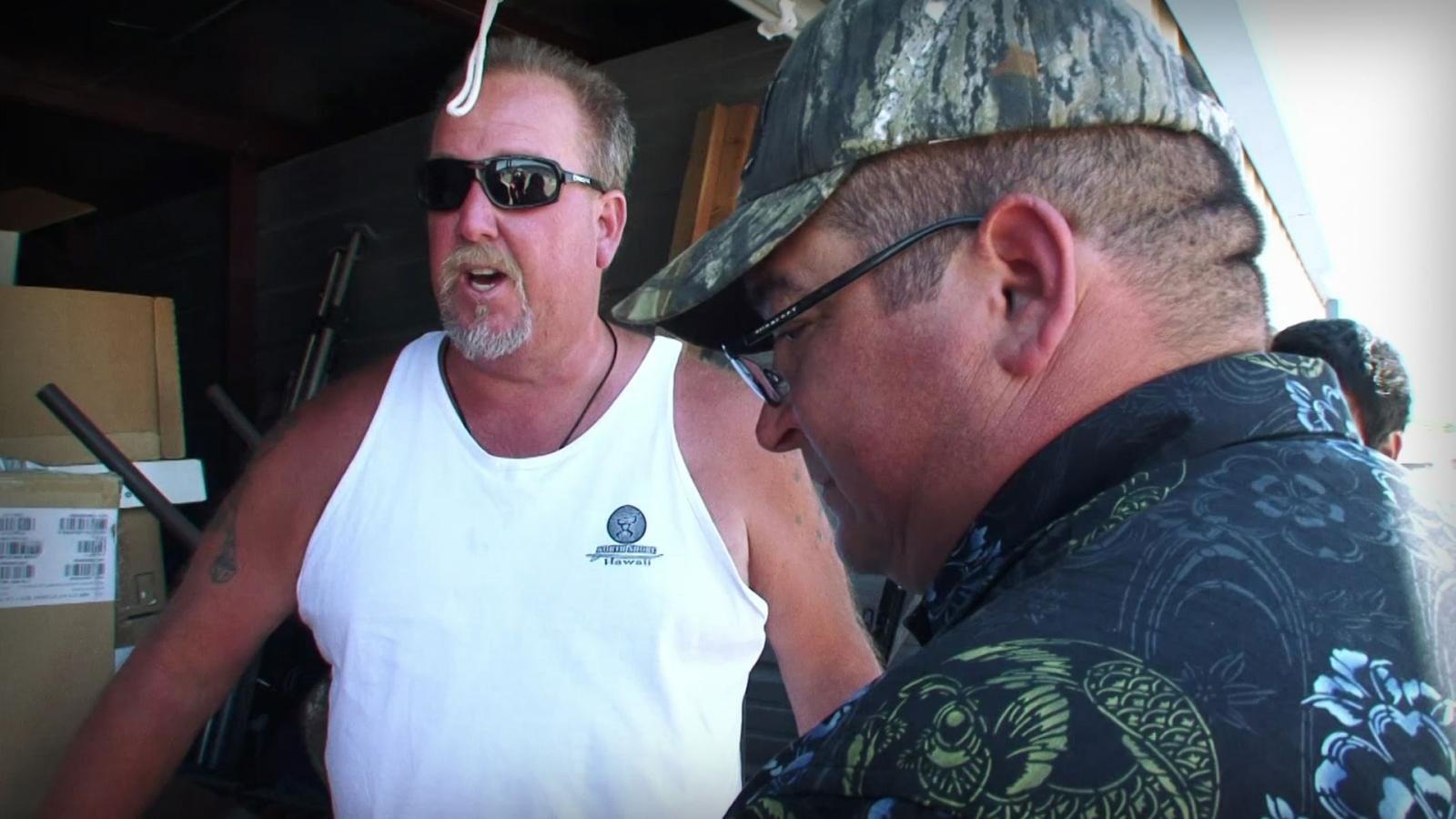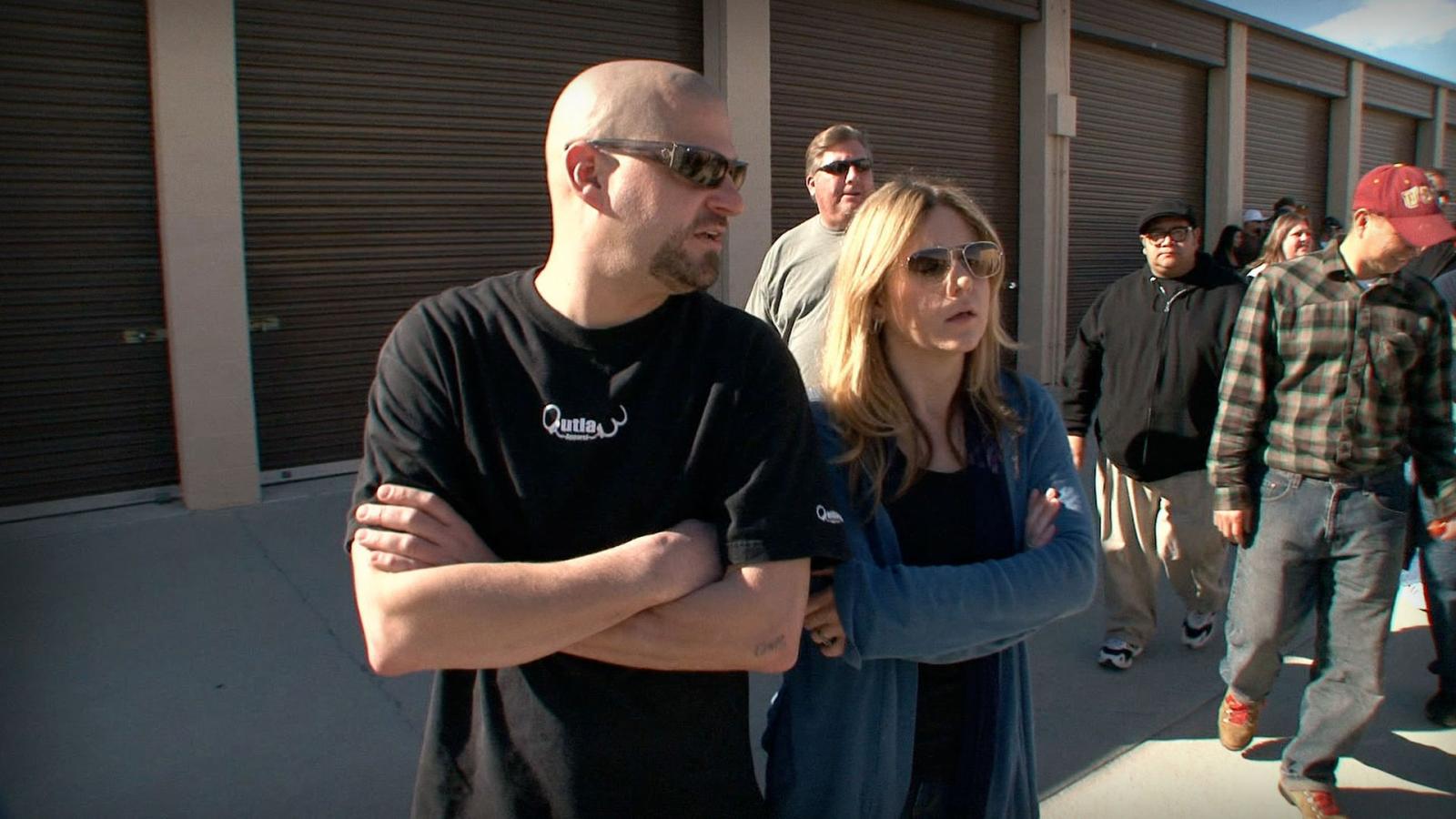This Storage Wars Scene Was So Fake, It Sparked a Lawsuit

It was only a matter of time. For years, Storage Wars sold itself as raw and unscripted — regular people gambling on forgotten junk in hopes of finding buried treasure.
But by 2012, one scene crossed the line so hard it dragged the entire show into court.
That scene? A Season 1 episode where bidder Daryl Sheets "discovered" a stack of pristine 1977 newspapers reporting Elvis Presley's death. Not only were they in suspiciously perfect condition, they were neatly bundled — the kind of curation you'd expect from a museum, not a defaulted storage locker. The find was estimated to be worth thousands, but actual collectors quickly pointed out that vintage Elvis papers are neither rare nor all that valuable.
The moment was glossy, dramatic, and — allegedly — planted. And it lit the fuse for the show's biggest scandal.

In December 2012, Dave Hester — the show's loudest personality and the man behind the infamous "Yuuup!" — filed a bombshell lawsuit against A&E and Original Productions. His claims:
- The show planted valuable items in lockers to manufacture drama.
- Cast members were given cash to buy overpriced units.
- Producers manipulated digs so cast members would "find" specific treasures.
- Rivalries and arguments were scripted or exaggerated for entertainment.
According to Hester, what audiences saw as a spontaneous treasure hunt was often pre-arranged, with producers orchestrating the drama behind the scenes. His court filing pulled no punches: Storage Wars, he said, was staged and fraudulent.
A&E denied everything, of course, painting Hester as a disgruntled former cast member. He'd reportedly been fired after refusing to participate in episodes he believed were rigged — and then, ironically, was brought back for later seasons, reinforcing his whole point about scripted casting dynamics.
The lawsuit was settled out of court in 2014, under confidential terms. No official ruling, no confirmation, no denial. But the damage was done.

After the lawsuit, fans began rewatching classic episodes with fresh suspicion. That time Barry Weiss stumbled on a vintage BMW Isetta microcar sitting untouched in a locker? A little too perfect. Or when Hester found a curated comic book collection valued at over $90,000? Convenient. And the sudden appearance of gold coins, military memorabilia, or pop-culture collectibles — often during season finales or cast comebacks — started to feel like marketing, not coincidence.
Even insiders started to admit things were "helped along." A former crew member later told the press:
"It wasn't fake the way a movie is fake, but yes, things were helped along... Sometimes we'd highlight something we knew was there. Sometimes we would move items around for better framing."
By that point, the illusion had cracked. Ratings held for a while, but the mystique — the idea that anyone could stumble onto a fortune in a dusty locker — was gone.
Here's a breakdown of what came out of the fallout:
- Hester: Went from franchise MVP to whistleblower. Lost fan goodwill. Returned for later seasons but never fully recovered.
- Barry Weiss: Left the show in 2013. Hinted later that the fun had been drained by production meddling.
- Daryl Sheets: Stayed mostly quiet, though he admitted the early seasons felt "more real" than what followed. Retired in 2017.
- Brandy & Jarrod: Got their own spin-off, then imploded post-show. Jarrod was arrested in 2021 after a domestic incident involving Brandy.
- Renee & Casey Nezhoda: Avoided controversy entirely. Moved to YouTube. Claimed their finds were 100% real.
Despite the lawsuit, Storage Wars wasn't canceled. It just slowly evolved. The edits got subtler, the discoveries less theatrical, and the show leaned harder on personalities over payoffs. But the trust never really came back.
That one Elvis scene wasn't just a red flag — it was the breaking point. It pulled back the curtain on how far reality TV is willing to bend the truth for a few dramatic reveals. And while Storage Wars might've inspired a generation of flippers and auction addicts, it also became a case study in how easily "unscripted" can slide into "unbelievable."